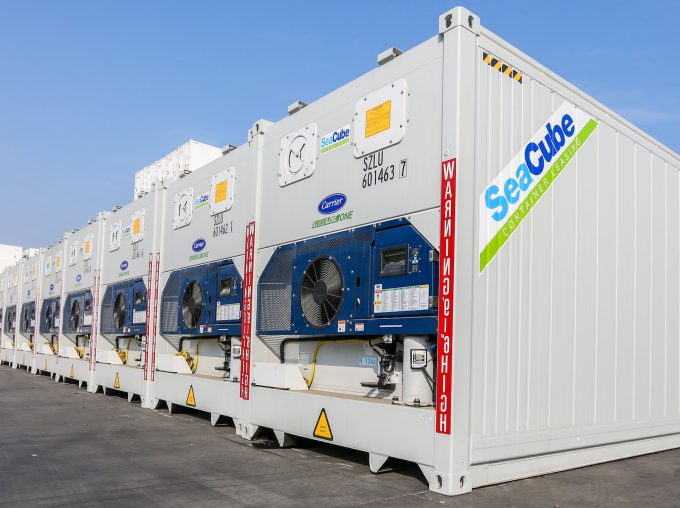TPM sketch – the blessed relief of 'Lars'
Jensen holds forth

While a US investigation into cyber security concerns over container cranes appears to be increasing diplomatic tensions between the US and China, there has been a fresh call for more diversity in reefer container sourcing.
“We have looked at the possibility of moving some of the reefer manufacturing out of China,” SeaCube Container Leasing chief executive Bob Sappio told delegates at this year’s S&P TPM conference in Long Beach, addressing concerns on the industry’s near-total reliance on Chinese manufacturers.
While the machinery which controls the refrigeration is produced in Ireland, the US and Japan, the boxes are all built in China, led by China International Marine Containers (CIMC), Dong Fang, Maersk Container Industry (MCI) and Guangdong FUWA.
“We would like to build a coalition of leasing companies, shipping lines and other stakeholders to ask if we should build some reefers in the western hemisphere.
“Currently all the reefers are built in China and then have to be moved to Latin America, often carrying dry cargo, where there is the demand for the equipment – so it would seem to make sense to build the units closer to where the demand is,” he added.
This has been attempted before, of course, with MCI’s ill-fated project to build reefers in a factory in San Antonio, Chile, which closed in June 2018, some three years after opening production lines, citing overcapacity in the reefer sector and the high costs of sourcing raw materials and developing a Chile-based supply chain.
MCI subsequently consolidated all its container manufacturing at its facility in the Chinese port city of Qingdao – its first dedicated reefer manufacturing plant, which began operating in 1998.
Mr Sappio said talks with potential manufacturers in the US – where there are a number of producers of refrigerated truck trailers – revealed similar concerns about profitability, especially given the fact that Chinese box production is largely undertaken by state-subsidised firms.
“We have made enquiries with the reefer trailer manufacturers here in the US, but they are all worried about making hundreds of millions of dollars’ worth of investment in new production lines and then seeing the Chinese producers reduce their prices to a level where all the business remains with them.
“However, we have all read the story about the investigation into Chinese-made container cranes, and I think the dominance of reefer manufacturing also needs to be looked at very seriously,” he added.
He suggested that a recent ownership change at SeaCube – UK infrastructure investment fund Wren House recently acquired a 50% stake from owner Ontario Teachers Pension Plan – may mean the leading reefer leasing company could, in part, fund new manufacturing capacity.
Mr Sappio’s words echo those of Federal Maritime Commissioner Karl Bentzel, who authored a 2022 report on container manufacturing in China, which noted: “When demand for ocean containers increased [during the pandemic], Chinese-based intermodal equipment manufacturers were notably slow in ramping up production, raising the question of whether this was part of a deliberate strategy to manipulate prices.
“The Department of Commerce has determined that Chinese container and chassis manufacturers are state-owned and controlled and are the recipients of large government subsidies,” it added.
Two months after the release of the FMC’s report the US Department of Justice blocked China-Merchants-owned box builder CIMC’s $1bn takeover bid for MCI on competition grounds.
Comment on this article